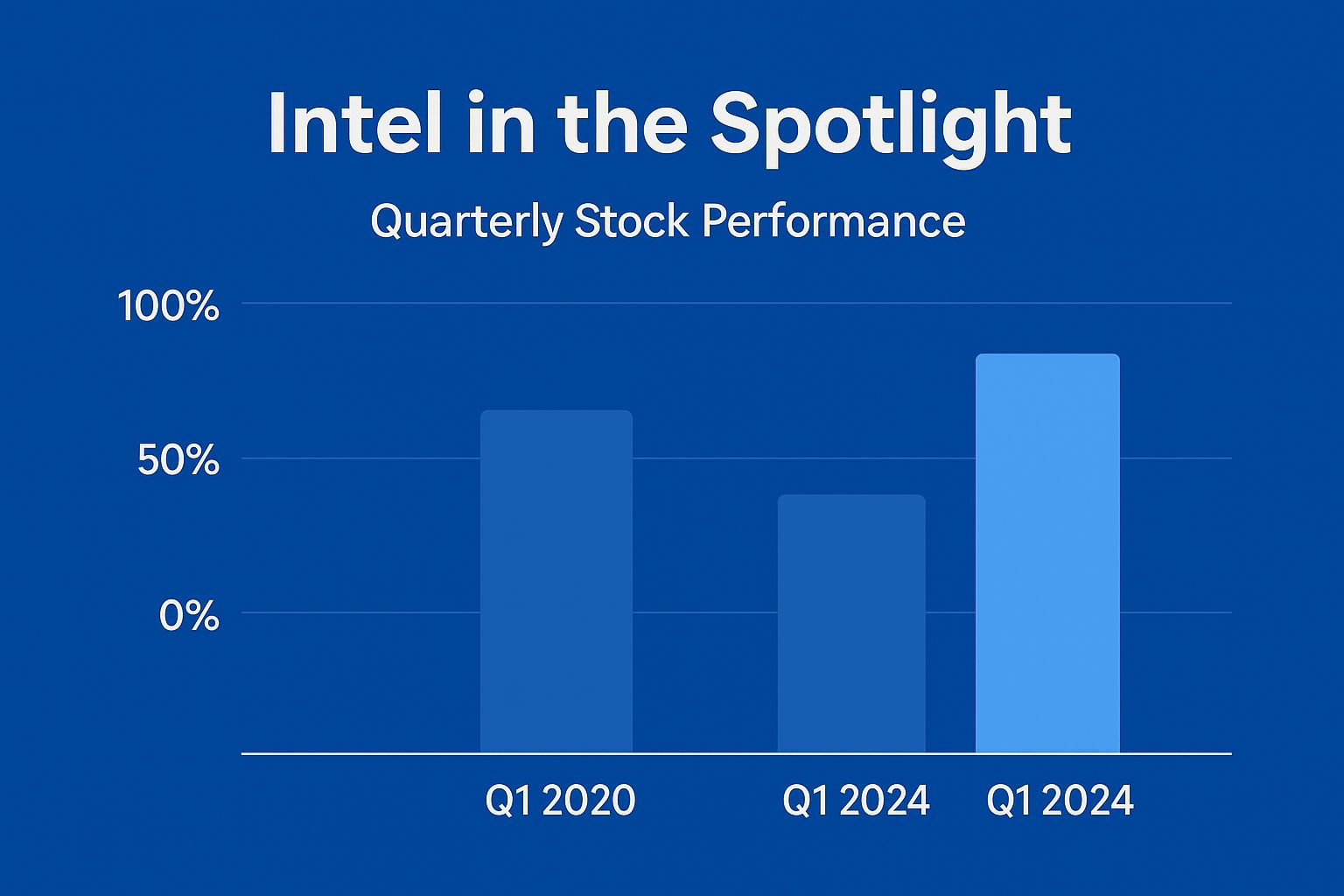- MINDSCOPE
- Posts
- U.S. May Take 10% Stake in Intel to Secure America’s Tech Future: Washington’s Bold Move
U.S. May Take 10% Stake in Intel to Secure America’s Tech Future: Washington’s Bold Move
How a rare government equity deal could reshape the global semiconductor race

👋 Greetings Readers,
Welcome to today’s special Business edition, where we dive into one of the most significant developments in the U.S. tech and policy landscape—Washington’s potential acquisition of a stake in Intel.
U.S. Why It’s Important
The U.S. government is in talks to acquire a 10% equity stake in Intel, underscoring Washington’s growing focus on securing critical technologies. Officials emphasize that semiconductors are not only vital for economic growth but also for national defense.
🏛️ White House Position
White House Press Secretary Karoline Leavitt said President Trump is committed to putting American interests first. The move reflects a broader effort to rebuild domestic semiconductor strength and reduce reliance on overseas suppliers.
Commerce Secretary Howard Lutnick added:
“We should be receiving equity in return, not just handing out subsidies.”
This indicates a shift from traditional grant-based support to an ownership model that ties government funding directly to corporate performance.
💡 What’s in Play
Grant Conversion: Existing government subsidies could be swapped for Intel shares.
Ohio Expansion: Funds would help Intel accelerate its flagship chip-manufacturing hub.
AI Chip Competition: Intel is pushing to catch up with rivals TSMC, Samsung, and Nvidia in the booming AI market.
📈 Market Signals
SoftBank Investment: The Japanese tech giant has committed to a $2 billion Intel stake, boosting market confidence.
Intel Stock Surge: Shares jumped nearly 7% in New York following the announcement.

🔍 Expert Insights
Vincent Fernando (Zero One Consulting): “This makes sense—semiconductors are strategic. Washington can’t afford dependence on foreign producers.”
Prof. Kevin J. Fox (UNSW Sydney): “While unusual, Intel isn’t in distress. State ownership could complicate governance and deter other firms from accepting federal support.”
⚠️ Risks & Concerns
Potential for political influence in Intel’s corporate decision-making.
May create hesitation among other tech firms considering government-backed programs.
Signals a new era of industrial policy, where Washington ties national strategy to direct corporate stakes.
🌐 Wider Industry Context
The chip industry remains under intense government scrutiny. Recently, Nvidia and AMD agreed to share 15% of Chinese revenues with the U.S. government in exchange for export licenses to China—an unprecedented deal highlighting how geopolitics is reshaping tech.
📊 Quick Snapshot: Intel vs Rivals (Market Share in AI Chips)

Company | Market Position | Recent Growth |
|---|---|---|
Nvidia | Global leader | 🚀 Rapid |
TSMC | Manufacturing powerhouse | 📈 Strong |
Samsung | Diversified tech giant | 🔼 Growing |
Intel | Catching up, U.S. backed | 💪 Strengthening |
📝 Final Takeaway
If approved, the deal would represent one of the rare times Washington takes a direct equity role in a private enterprise outside of a financial crisis. More importantly, it highlights the strategic urgency of ensuring the U.S. leads in advanced semiconductor production.
🙏 Thank You for Reading!
Stay informed with us as we continue tracking the evolving landscape of U.S. technology, policy, and global competition.
Find out why 1M+ professionals read Superhuman AI daily.
In 2 years you will be working for AI
Or an AI will be working for you
Here's how you can future-proof yourself:
Join the Superhuman AI newsletter – read by 1M+ people at top companies
Master AI tools, tutorials, and news in just 3 minutes a day
Become 10X more productive using AI
Join 1,000,000+ pros at companies like Google, Meta, and Amazon that are using AI to get ahead.

